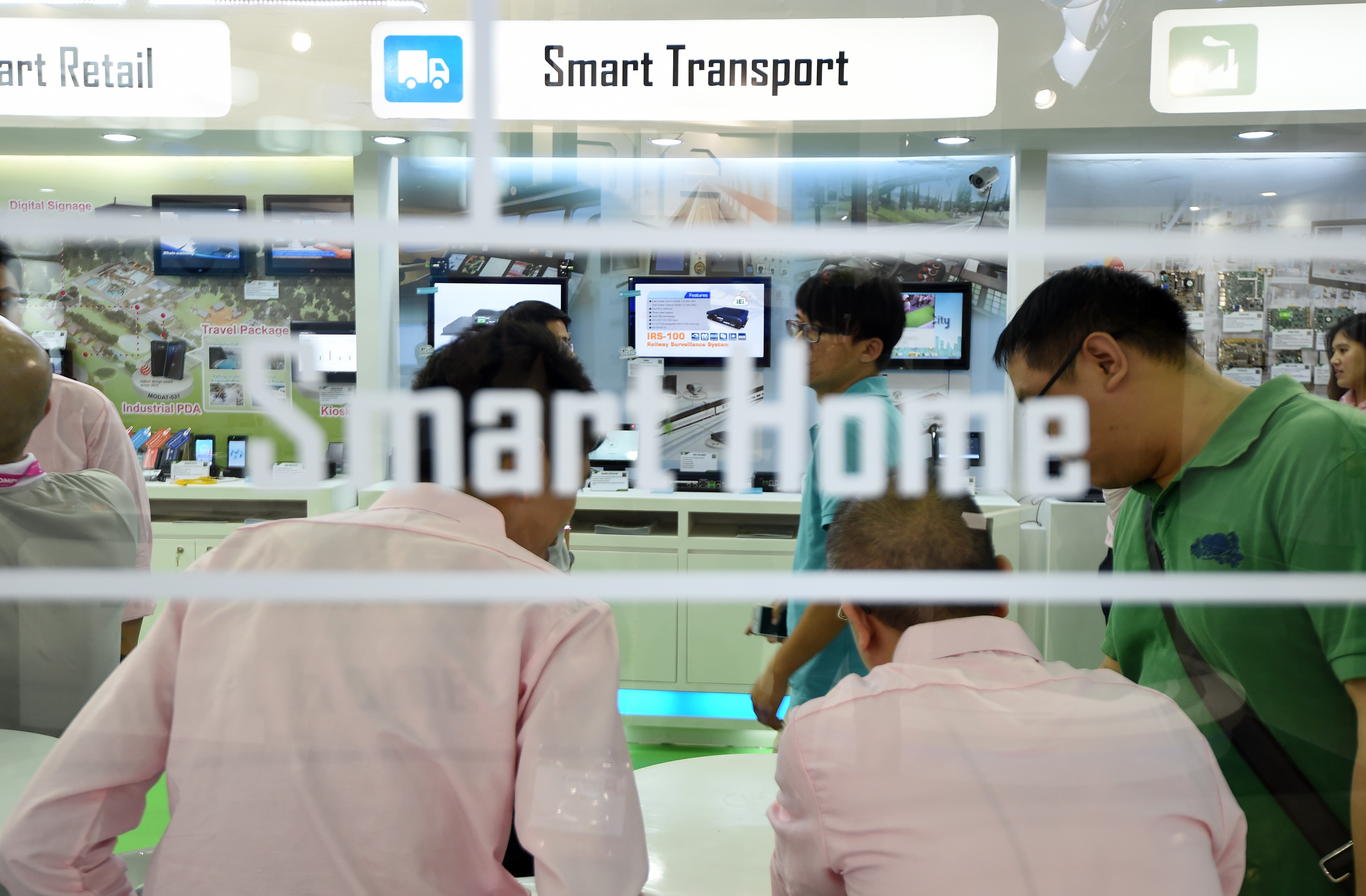
by Glenn CHAPMAN
Smart home technology that has long been knocking at doors will settle into the mainstream after rival gadgets and services become hassle-free guests that get along with one another, industry insiders say.
While smart home offerings have been around for years, attention has been heightened by Google, Amazon and Apple maneuvering to be at the heart of managing devices capable of wirelessly taking commands or feeding information.
“We need to look at problems in the home from a holistic perspective and realize it is the value of all these devices working together that will drive adoption of the smart home,” EVRYTHNG senior vice president of connected products Curt Schacker said.
He was speaking in Silicon Valley on Tuesday for the start of a 20th anniversary Connections conference devoted to smart homes and the fast-growing Internet of Things.
EVRYTHNG works with businesses to manage data gathered from just about any object given a “real-time digital identity” by using computer chips, sensors or even scannable codes.
“We think every single thing in the world can benefit from a digital identity,” Schacker said.
– Asking for assistance –
Last week, Google unveiled a virtual home assistant device that will challenge Amazon Echo as the Internet giant laid out a future rich with artificial intelligence.
Google Home, about the size of a stout vase, will hit the market later this year, vice president of product management Mario Queiroz promised at the Internet giant’s annual developers conference.
Home devices will incorporate new Google virtual assistant software introduced by chief executive Sundar Pichai.
“Our ability to do conversational understanding is far ahead of what other virtual assistants can do,” Pichai told a packed audience.
“We are an order of magnitude ahead of everyone else.”
Home devices combine machine learning, online search, voice recognition and more to allow people to get answers to questions, manage tasks or control devices by speaking naturally, demonstrations showed.
When Home hits, it will challenge Amazon Echo voice-controlled assistants that have proven to be a hit since the Seattle-based online retail colossus unveiled them two years ago.
Echo models are infused with Alexa virtual assistant software that can be built into anything “from a lawn sprinkler to a ceiling fan,” Amazon Echo chief evangelist David Isbitski said at Connections.
“We started thinking about Echo and Alexa and it was hard for us to imagine in a couple of years any kind of interaction with technology will not be voice driven,” Isbitski said.
“It is easy to see that voice will be everywhere.”
He envisioned an era of “ambient computing” in which, as depicted in science fiction, people speak commands and machines respond and obey with the help of artificial intelligence.
“The Internet of Things enables these smart home scenarios we have been talking about for years,” Isbitski said.
A section at Amazon’s online retail website is devoted to smart devices that work with Alexa, an open network that invites developers to teach the software new skills.
Amazon last year established a $100 million Alexa Fund to provide venture capital for innovators working with the technology.
“We are crawling; we are going to be walking pretty quick and we are all looking forward to running toward that smart home that we have always envisioned,” Isbitski said.
– Apple seeks a bite –
Meanwhile, Apple has been wooing developers with a HomeKit framework for using the technology giant’s devices and Siri virtual assistant to manage smart appliances, fixtures and more.
Apple is believed to have HomeKit news planned at a press event taking place in San Francisco in June.
Speakers at Connections were skeptical that one smart home device would rule them all, given the array of service providers and gadget makers along with the fact that the web of smart things is growing to include cars.
Mark Skarpness chairs IoTivity, a project aimed at establishing standards that would let the gamut of smart devices work together.
“I think the market will get much bigger if you are not spending all your time competing on connectivity and instead competing on what we can do for you,” he said.
© 1994-2016 Agence France-Presse








